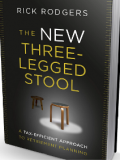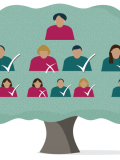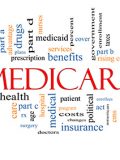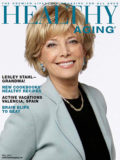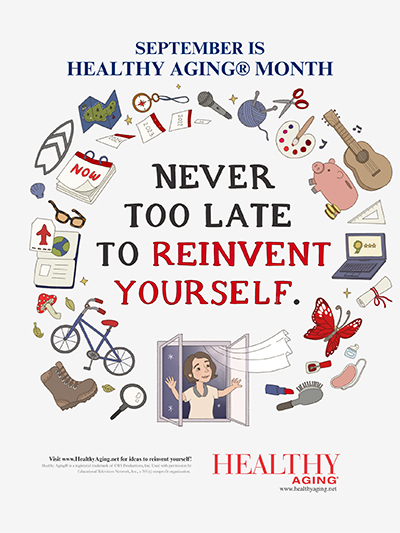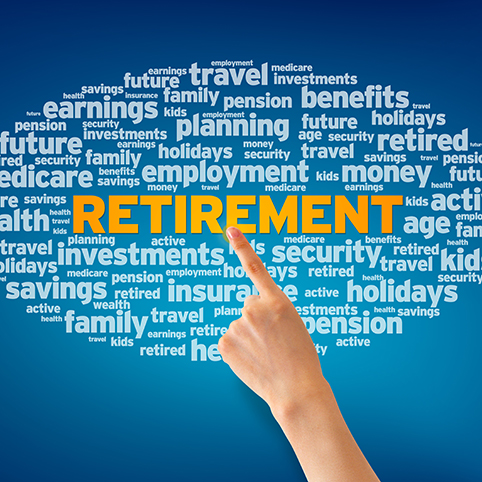 Financial security is top of mind for many older adults. Almost sixty percent of Americans aged 60 and over are concerned that health care costs (56%) and 43 percent are concerned that prescription drug costs are outpacing retirement savings, according to a new NCOA/Ipsos survey. The national survey also finds that women are even more concerned than men about these costs and the potential impact on their family.
Financial security is top of mind for many older adults. Almost sixty percent of Americans aged 60 and over are concerned that health care costs (56%) and 43 percent are concerned that prescription drug costs are outpacing retirement savings, according to a new NCOA/Ipsos survey. The national survey also finds that women are even more concerned than men about these costs and the potential impact on their family.
“All too often, older women are feeling the very real consequences of the income gap during retirement. After careers of earning less than their male counterparts, women are more likely to face financial insecurity, and this survey shows widespread concern among women, far more than men,” said Anna Maria Chávez, NCOA executive vice president and chief growth officer.
The National Council on Aging (NCOA), a nonprofit advocacy and service organization that focuses on joining the efforts of government, businesses and nonprofit organizations to improve the lives of older adults, in partnership with Ipsos, a global market research and a consulting firm , released the results.
“Those results underscore the reality of an uneven playing field for women in the American economy and the economic opportunity cost after years as mothers and caregivers and not wage-earners. However, the ever-rising cost of health care and prescription drugs are a real and imminent threat to a safe, secure, and dignified retirement for aging adults across the country regardless of gender. Those on fixed incomes are even more worried,” added Chávez.
The survey of 1227 adults aged 60 and over conducted between May 29, 2019 and June 14, 2019 found the rising cost of health care and prescription drugs and losing their independence are the top concerns of older adults and a direct threat to a secure retirement:
60 percent of women aged 60 and over are worried health care costs will exceed retirement income
- 56 percent of Americans aged 60 and over, regardless of gender, are worried that health care costs will exceed retirement income
- 68 percent of Americans aged 60 and over with household incomes of under $50,000 are worried
46 percent of women aged 60 and over are worried that prescription medicine costs will exceed retirement income
- 43 percent of Americans aged 60 and over, regardless of gender, are worried that prescription medicine costs will exceed retirement income
- 54 percent of Americans aged 60 and over with household incomes of under $50,000 are worried
51 percent of women aged 60 and over are worried about outliving their savings
- 48 percent of Americans aged 60 and over, regardless of gender, are worried about outliving their savings
- 61 percent of Americans aged 60 and over with household incomes under $50,000 are worried
59 percent of women aged 60 and over are worried about losing their independence
- 54 percent of Americans aged 60 and over, regardless of gender, are worried about losing their independence and almost half (46 percent) worry about becoming a burden to their families.
52 percent of women aged 60 and over are worried about becoming a burden to their families, a full 12 percent more than men
“Every day, 10,000 people in America turn 65 and nearly half of our population is already over the age of 60,” said Chávez. “From our BenefitsCheckUp® website to falls prevention programs to chronic disease self-management and improving Medicare low-income beneficiary enrollment, NCOA is working with policymakers in Washington and partners across the country to help address these concerns head-on for a growing population of older adults across the country.”
“Our recent NCOA/Ipsos survey of older Americans finds that most people 60 and older report being pretty happy with their current lives,” reports Annie Weber, senior vice president at the research company Ipsos. “That is despite majorities of this group reporting worry about their physical health and their health care costs exceeding their savings.”



